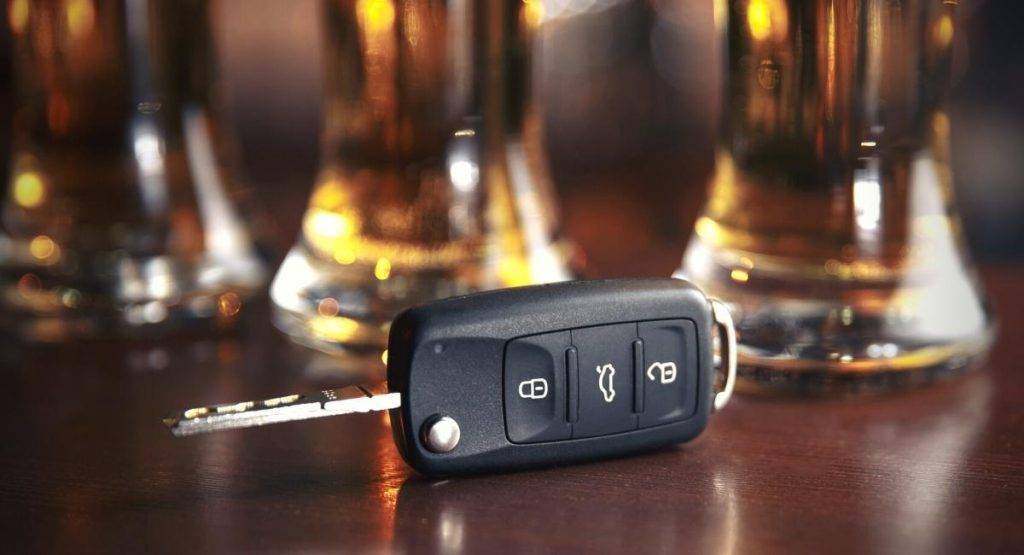One of the first and primary concerns any person arrested for driving while intoxicated (DWI) is going to have will be about what a Texas DWI cost. While the Texas Department of Transportation (TxDOT) once claimed on a billboard in 2011 that a DWI could cost a person $17,000, Politifact determined that claim was barely true because costs could actually be higher in cases in which alleged offenders cause collisions or injuries.
The bottom line is that Texas certainly intends to make the cost of a DWI very high as a form of punishment for alleged offenders, so you should definitely be expecting a good hit to your wallet. The total cost will always vary on a case-by-case basis depending on numerous variables, but you should definitely anticipate being forced to pay thousands of dollars to address all of the costs arising from a conviction.
Court Costs and Fines
When a person is convicted of DWI, they can expect to pay fees for every court appearance. Such court costs can range from anywhere as low as $200 to as much as $1,500.
A conviction for DWI will also result in fines being imposed by a court. The amount largely depends on the number of prior offenses an alleged offender has, as well as the presence of aggravating factors and whether another person was hurt because of drunk or drugged driving.
Criminal penalties generally include the following fines:
- First offense — Fine of up to $2,000
- Second offense — Fine of up to $4,000
- Third or subsequent offense — Fine of up to $10,000
- DWI with child passenger — Fine of up to $10,000
- Intoxication assault or manslaughter — Fine of up to $10,000
The bottom line criminal penalties in DWI cases are:
- First offense — Up to 180 days in jail, driver’s license suspension of up to one year, and an annual fee of up to $2,000
- Second offense — Up to one year in jail, driver’s license suspension of at least one year, and an annual fee of up to $2,000
- Third or subsequent offense — Up to 10 years in prison, driver’s license suspension of up to two years, and an annual fee of up to $2,000
- DWI with child passenger — Up to two years in state jail, driver’s license suspension of up to one year, and an annual fee of up to $2,000
- Intoxication assault or manslaughter — Up to 10 years in prison, driver’s license suspension of up to two years, and an annual fee of up to $2,000
Jail Time and Employment Issues
When a person is convicted of DWI and their sentence includes jail or prison time, then they may not have to pay money to be in jail or prison but they also will not be able to work and earn an income. Worse yet, the job they had before going to jail or prison may not still be waiting for them when they are released or an employer could use a DWI conviction as cause for terminating the employee altogether.
Having a DWI conviction on your criminal record will make it more difficult to secure new employment because the arrest and conviction will be viewable by potential employers and could be grounds for not extending a job offer. Again, this may not translate into money coming directly out of your pocket but certainly impacts you ability to put more money in your pockets.
Administrative Penalties and Fees
A driver’s license is customarily revoked after a DWI offense, and this process is known as administrative license revocation. The amount of time the license is revoked will be decided during court proceedings and depends on whether an alleged offender refused or failed chemical testing and had prior DWI offenses.
In general, license revocation lasts from 180 days up to two years. You face significant administrative penalties and associated fees for a DWI conviction.
Texas repealed the surcharges it used to charge, which were additional fees on top of the normal fines and penalties for a DWI conviction. Surcharges for DWIs were as little as $3,000 but be as high as $6,000.
That said, fines for DWI have increased to cover the loss of the surcharges. Mandatory fines are now a flat $3,000 charge for a first offense, with an additional annual fee of up to $2,000 to retain a driver’s license.
A second offense within a 36-month period now results in a flat fine of $4,500. Any DWI in which an alleged offender’s blood or breath alcohol concentration (BAC) is 0.15 or higher can lead to a flat fine of $6,000
Aggravating factors or a third or subsequent offense may increase fines to as much as $10,000. These fines are not maximum amounts either, but minimums.
This means you will have no potential for fines to be reduced for convictions. Any results in at least $3,000 in fines, and as much as $10,000.
Additional penalties can include mandatory substance abuse treatment programs, community service, and an ignition interlock device. These can also involve significant costs.
Monthly Probation Fees
Probation will be mandatory for a DWI conviction, and first-time offenders are typically placed on probation for up to 12 months. If a case involves aggravating factors or an alleged offender is a repeat offender, probation will be longer and probation involves a fee of up to $100 a month.
Alcohol and DWI Education Programs
A DWI conviction can also result in a requirement to participate in and pay for an alcohol education program. This costs $70 for first-time offenders and about $185 for repeat offenders.
First-time offenders will also have to participate in a 12-hour DWI Education Program that costs $60 for early bird registration, $90 for regular registration, $120 for late registration, and $140 for same-day registration.
Ignition Interlock Device
Many alleged offenders will be required to install ignition interlock devices (IIDs) in their vehicles. An IID carries an average price of up to $150 for the initial installation and a monthly fee of up to $95 for device monitoring.
Vehicle Impound Costs
Following a DWI arrest, law enforcement often tows and impounds a vehicle. Towing fees can range from as low as $250 to as much as $450. Impoundment fees are usually at least $20 per day.
Texas DWI Court Process
An alleged offender’s first court appearance is usually between 40 and 60 days after their arrest. At the first appearance, a criminal defense lawyer can request evidence such as witness statements, videos, police reports, or other documents from a prosecutor.
The judge sets another date for an announcement setting to be held 20 to 30 days later, and another announcement setting held 20 to 30 days after that one. At announcement settings, an alleged offender or their attorney will enter a plea or request a trial.
Plea bargaining with a prosecutor usually involves giving a prosecutor a plea of guilty in exchange for some kind of reduced sentence or charges. When you enter a not guilty plea and stick to it, then the criminal case could proceed to a trial.
Trials are generally rare in DWI cases because they are expensive and time-consuming for prosecutors, but they may be necessary to secure convictions when alleged offenders refuse to plead guilty. A DWI trial can be very challenging because the prosecutor will present evidence to a jury that an alleged offender was under the influence of alcohol or drugs at the time of their arrest and the alleged offender will have to rely on their criminal defense lawyer to present a case as to why they are not guilty.
Criminal cases frequently end in convictions because most jurors want to see people punished for breaking the law by driving drunk. That said, a criminal defense attorney could present compelling evidence that leaves jurors unable to conclude beyond a reasonable doubt that an alleged offender committed the crime in question, so it is possible to overcome criminal charges in some cases.
Find A Dallas County Defense Attorney for DWI Charges | Law Offices of Richard C. McConathy
Richard C. McConathy is a Dallas DWI lawyer who understands the great stress that fines and other court costs can impose on his clients. He fights to keep these costs to a minimum, often by trying to get criminal charges reduced or completely dismissed.
In addition to common DWI cases, The Law Offices of Richard C. McConathy also handles intoxication manslaughter offenses in which alleged offenders allegedly cause the death of another person because of driving while intoxicated. Drunk driving crashes causing serious injuries usually result in intoxication assault charges.
Were you recently arrested for a DWI in the greater Dallas area? Make sure you have a lawyer who handles these types of cases like The Law Offices of Richard C. McConathy, where we have been defending individuals all over North Texas against all kinds of DWI charges for decades.
Our firm will take the time to sit down with you and help you understand all of your legal options. Get a full review of your case when you call (972) 233-5700 or contact us online for a free consultation.





